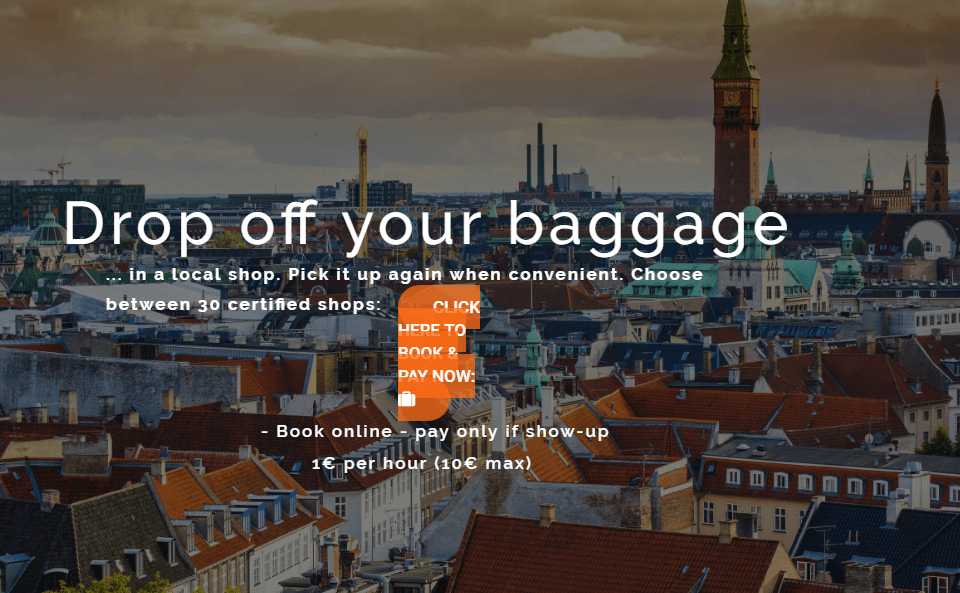A Danish entrepreneur has established a new service, Dropnlocal, which allows short-stay tourists to drop off their luggage and thus take in the sights and sounds of Copenhagen unencumbered.
The service involves a network of local shops and cafes where tourists can drop off their baggage for a few hours for a small fee.
“Initially, we want to get up to 100-200 shops in Copenhagen and Aarhus,” Jannik Lawaetz, the man behind the new service, told Metroxpress newspaper.
“The next step is getting into Oslo and Bergen, where I have a co-operation partner. And after that we’ll take a look at the rest of Europe.”
READ MORE: Danish app alerts about travel risks and safety issues
Comfortable solution
Lawaetz said he is in talks with potential investors that will permit him to speed up the development of the concept.
Customers pay one euro per hour for storing their standard-sized bags, as well as a two-euro start fee. Larger and more cumbersome luggage – such as a guitar case – costs two euros per hour. The maximum cost is 10 euros for an entire day.
Customers can find the nearest drop-off point by searching the map in the web-app Dropnlocal.com (here in English). The baggage is also covered by a 3,000 kroner insurance, although the company is working with an insurance company to increase the amount.















